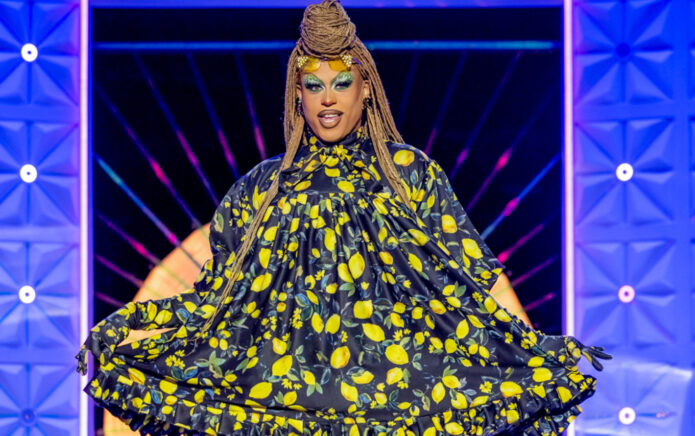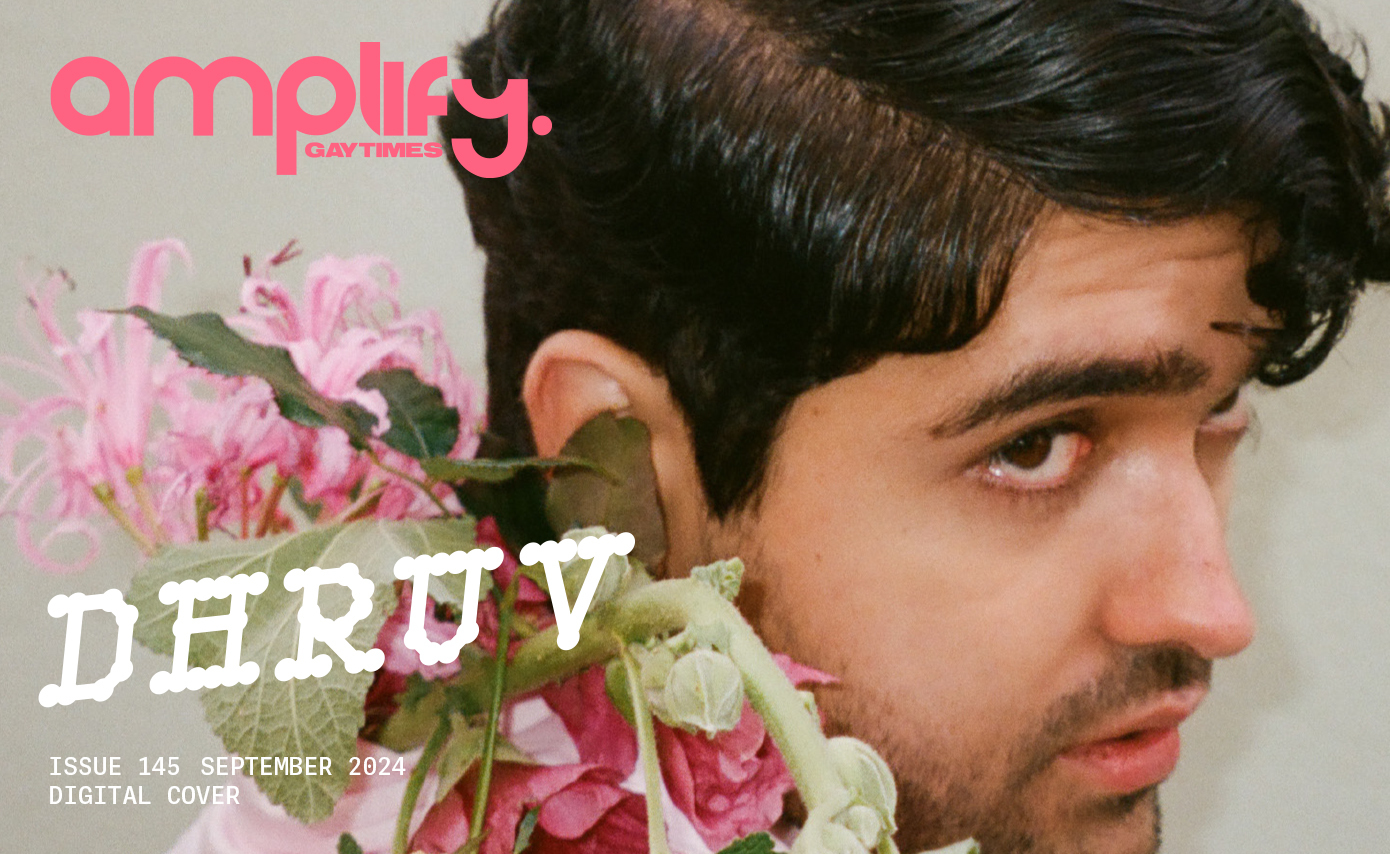
If you’ve listened to his music, it will come as no surprise that Dhruv Sharma is a Pisces. Known mononymously as Dhruv to his fans, the singer-songwriter crafts compellingly introspective pop and gained attention for earworm ‘double take’ at the dawn of TikTok music virality in 2021. Since then, he’s further proved his water sign credentials with delicate songs exploring memory, nostalgia and an acute awareness of his internal emotional temperature.
Originally hailing from London, the British-Indian musician moved to Singapore at the age of two and recalls an eclectic musical initiation which spanned Hindi-language songs from Bollywood movies, chart-topping pop and British ballads from the likes of Adele and Amy Winehouse. Early on, his taste in tunes spanned continents – perhaps giving rise to his international appeal, which has seen the artist chart in the Philippines, Thailand, Malaysia and Singapore.
When he talks to GAY TIMES, the 25-year-old artist is on the precipice of a major milestone in his creative journey: the release of his debut album Private Blizzard. Honest and vulnerable – single ‘Speed of Light’ explores the feeling of having ‘lost’ a breakup – it marks a major evolution for the artist, and his most stirring work to date.
Below, we catch up with the singer-songwriter to go deep on the new album, discuss his formative musical memories and to hear about the queer artists who shaped him.
How are you today – what have you been up to?
I flew into London this morning from New York. I spent like half the day sleeping and half the day catching up on the work I missed while I was sleeping. So, overall, a wash of a day. It’s 11pm and I’m probably going to be up for a while because of the jet lag.
Not ideal! So, onto the music. Since making your breakthrough in 21, what have you learned about yourself?
I’ve learned to trust my intuition more. This job can be a mind fuck and sometimes the “rational choice” isn’t the best one – I’ve had to learn that the hard way. I’ve also become better at separating my self-worth from commercial performance. After my song ‘double take’ went viral in 2021, I felt like I had to create some big statement song that recaptured the success of it. For a few months I was consumed with this idea and made shit music that I hated. I’ve definitely come back to a place of making things because I love them, even if no one else does, and that’s where I want to be forever.
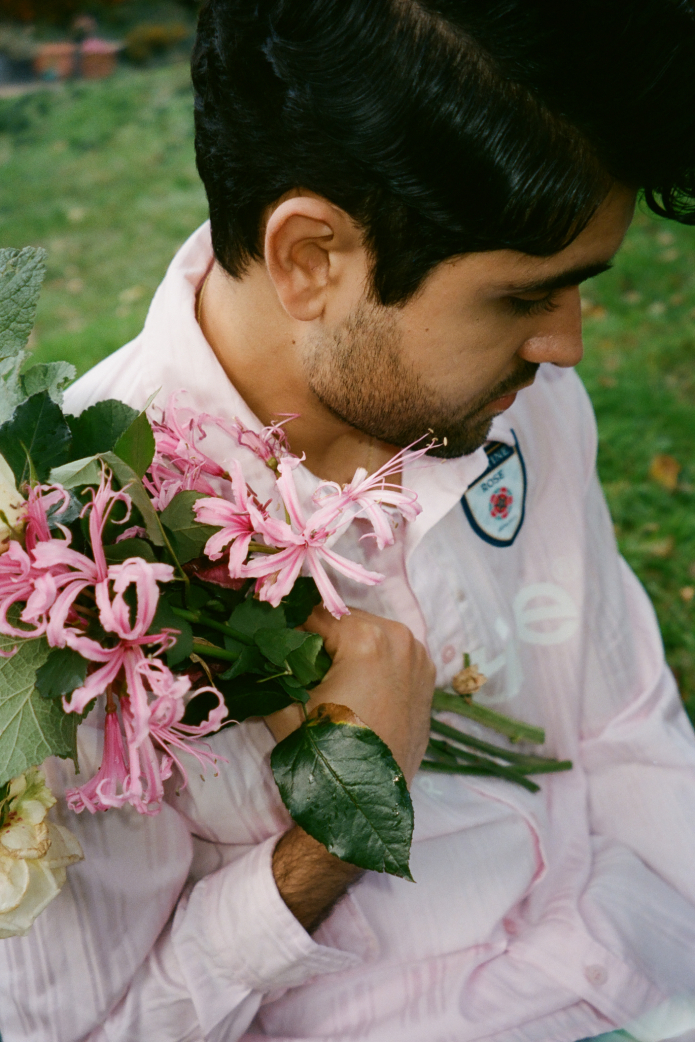
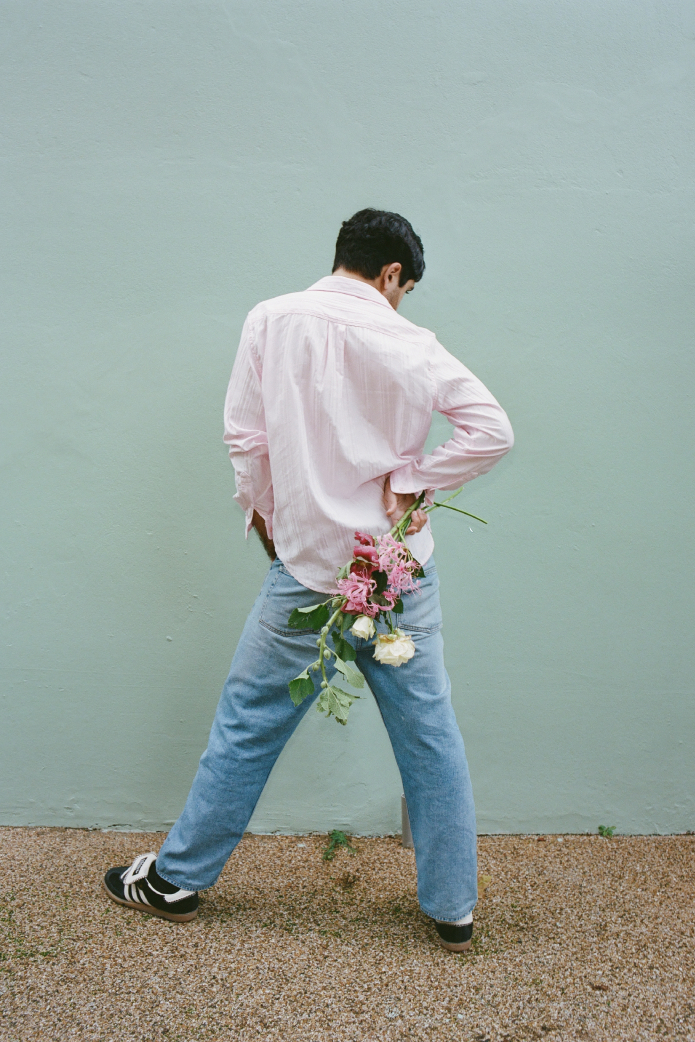
Your style is eclectic, blending different sonic influences into a cohesive sound. What music did you grow up listening to?
My parents are from India and they mostly listened to Hindi songs from Bollywood movies. I absorbed a lot of that. At the same time, I was obsessed with the music I’d hear on the radio in the taxis in Singapore, where I grew up. It was a lot of mainstream pop but there were also songs like ‘Back to Black’ and ‘Chasing Pavements’, which remain two of my favourite songs to this day. I feel really nostalgic for that era of British soul music in the 2000s.
You have a huge international audience – what do you think makes people connect with your music?
I’m not sure. I only write songs from personal experience and I think listeners can feel when something is real and when it isn’t.
Who are the LGBTQIA+ artists that inspire you most and why?
I will always have a soft spot for Troye Sivan’s music. His album Blue Neighbourhood felt like a true friend when I was closeted in high school. I’ve loved all of his records since, especially his In A Dream EP.
What’s your favourite music memory?
Playing shows in India last summer. Most of my extended family live there and I never really imagined a world in which they would get to see me play. My grandmother, who is 90, came to my Delhi gig and brought all of her friends which was really cute. It was surreal to play a sold-out show and then to go home and sleep in the bedroom I spent a lot of my childhood in.
Can you tell us more about your debut album, Private Blizzard?
The contrast of the words “private” and “blizzard” is a good indication of what it’s going to sound like. It’s intimate and vulnerable but sonically very big. Lots of instruments. I made it in Nashville, which is famously called ‘music city”, and we had a group of really phenomenal live musicians play on every song on the album.
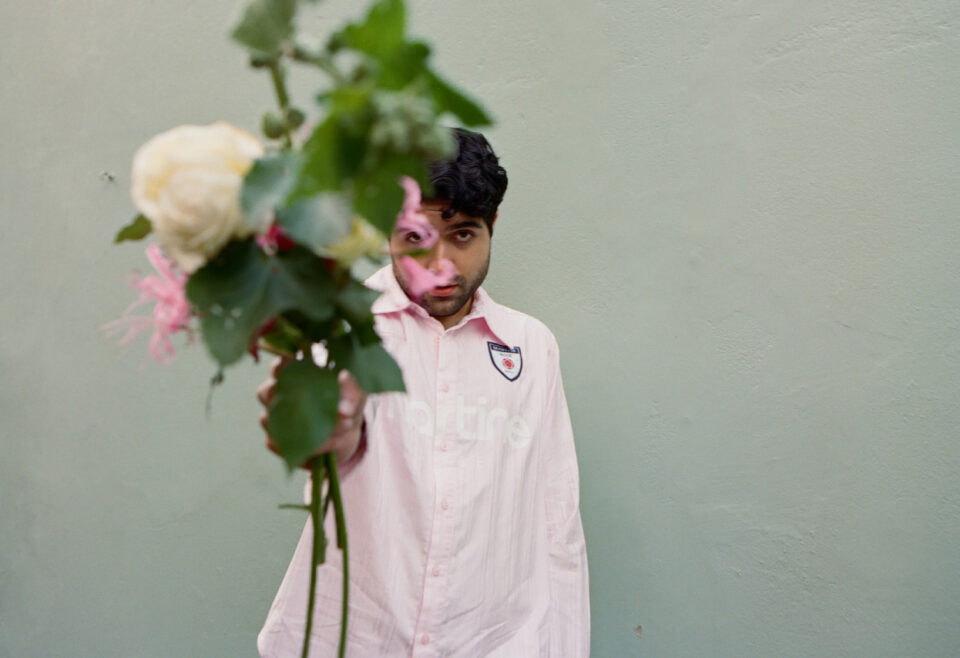
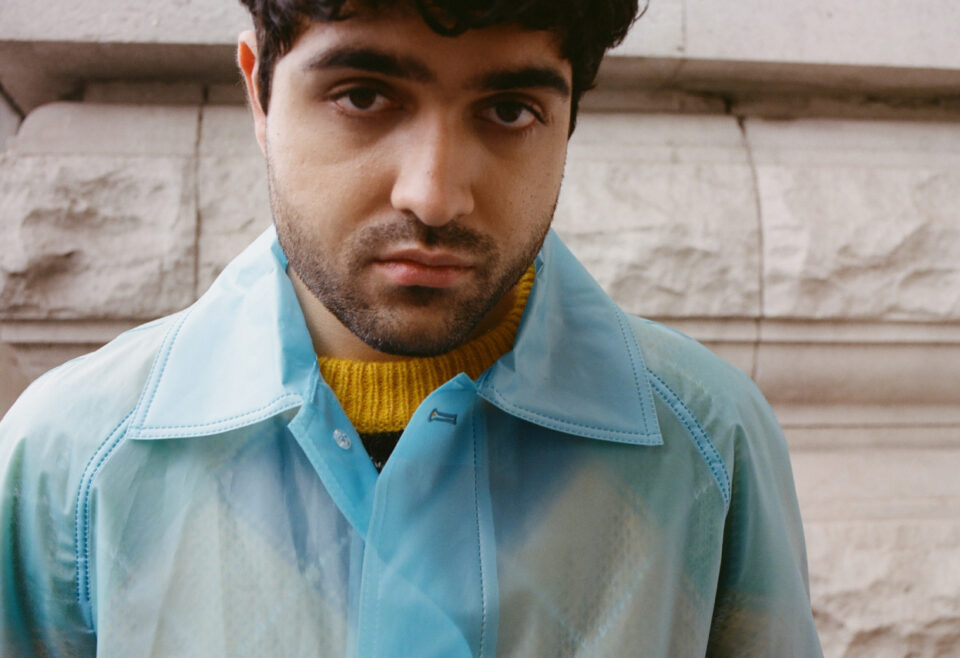
What did the creative process for this album look like?
I wrote a lot of it outside of the studio and workshopped the lyrics in coffee shops, libraries and train stations. The process spanned different cities, too: New York, London, Singapore and Nashville. My main collaborator, JT, would then help me refine it in the studio and would hone in on the production details.
What is something you learned to embrace while making the album?
The uninspired moments. There’s nothing linear about making an album and at some point in the process I stopped beating myself up for having an unproductive day. I just kept persisting with it and reasoned that it was all a part of the process of creating. Wrong turns eventually lead to right turns.
What’s the meaning behind your song ‘Speed of Light’?
‘Speed of Light’ is about feeling like you ‘lost’ the break up. It’s watching an ex quickly move on and wondering whether they really cared about you as much as they said they did.
Lastly, what are your big plans after the album?
I’m opening for Jordan Rakei in Europe. Then, I’m heading on my own solo run in the US and Asia at the top of next year. A deluxe Private Blizzard could be in the works or maybe even a new album entirely. I’m trying to keep an open mind.
Private Blizzard is out now on RCA Records.
